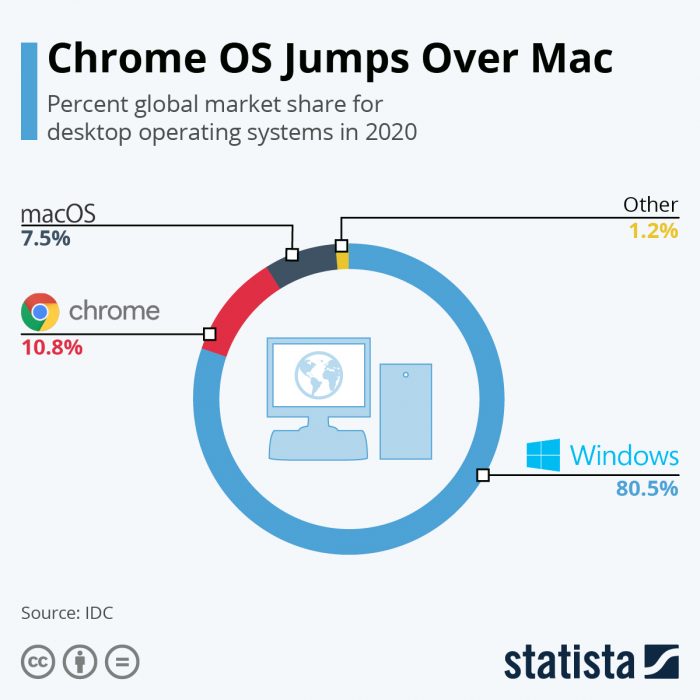
The race to become the world’s most used desktop operating system isn’t going to end anytime soon. The competition is getting harder as we speak and now a major contender has been replaced by a relatively new OS.
We are talking about Google’s Chrome OS beating Apple’s macOS for the 2nd position on the list of the most used desktop operating systems in the world.
Chrome OS Surpasses macOS

According to the data released by IDC, Chrome OS owns the second highest market share globally in 2020, grabbing a 10.8% chunk of the pie, up from 6.4% in 2019. On the other hand, macOS has grabbed a 7.5% market share, up from 6.7% in 2019.
Of course, Microsoft’s Windows 10 remains the undefeated winner with a total market share of 80.5% (down from 85.4% in 2019), while other remaining operating systems including Linux distros constitute a total of 1.2%.
Why we are seeing more of Chrome OS?
Generally, we don’t find many Chrome OS devices running around. While there aren’t many options to consider, one reason is that Google’s focus in promoting Chrome OS mostly revolves around education and business customers.
For that reason, the search giant has partnered with Parallels Desktop to bring Windows apps to Chromebooks for enterprise customers first, much-needed compatibility that will lure more users.
Google offering low-cost Chromebooks with a lightweight OS, great battery life, Google services, and focus on progressive web apps is certainly a perfect catch. Especially for those who are looking at similarly-priced Windows laptops. Many schools all over the world went online and many people started working from home, boosting overall PC sales after a dry spell during the start of 2020.
So, Google has been able to crunch some numbers during the pandemic, adding to its graph that has increased in the last couple of years. Not to mention, these numbers are feeding upon the success of Microsoft’s Windows as macOS also saw an upward graph from 2019.
via Ars Technica
The post World’s Most Used Desktop Operating Systems: Chrome OS Beats macOS appeared first on Fossbytes.